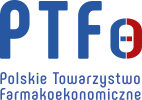From the Editors
-
Copyright
© 2025 PRO MEDICINA Foundation, Published by PRO MEDICINA Foundation
User License
The journal provides published content under the terms of the Creative Commons 4.0 Attribution-International Non-Commercial Use (CC BY-NC 4.0) license.
Authors
| Name | Affiliation |
|---|
From the Editors
It is with great pleasure that we present this latest issue of the Journal of Health Policy & Outcomes Research (JHPOR), which brings together a diverse and thought-provoking collection of articles addressing key public health challenges and policy considerations from across the globe.
This issue highlights the complex interplay between health behavior, socio-economic factors, and healthcare systems. We begin with an insightful path analysis examining adolescents’ acceptance of non-communicable disease (NCD) prevention policies in Indonesia—a topic of growing urgency as chronic conditions increasingly affect younger populations. Complementing this are studies exploring traditional medicine practices in conflict-affected regions of Syria, and the vital role of socio-economic and governance factors in shaping menstrual hygiene management in India’s EAG states.
European contributions underscore pressing clinical and policy issues within Polish and broader Central and Eastern European contexts. These include evaluations of immunoglobulin use, the pharmacoeconomics of chronic lymphocytic leukemia (CLL) treatment, and real-world optimization of asthma care, supported by national health data systems. Moreover, the prevalence of parasitic infections among Polish soldiers and drug utilization in pediatric care in India provide important perspectives on global health security and rational pharmacotherapy.
Workforce dynamics are also addressed in a focused analysis of employee satisfaction across U.S. hospitals—an essential topic as healthcare systems grapple with burnout and retention challenges. These themes are unified by a shared commitment to evidence-based insight, actionable policy recommendations, and cross-cultural understanding.
As health systems navigate the post-pandemic landscape, such interdisciplinary research is not only timely but essential. I extend my gratitude to the authors, reviewers, and editorial team for their continued dedication to advancing health policy and outcomes research. We hope this issue will inform, inspire, and stimulate dialogue among researchers, policymakers, and practitioners alike.
Sincerely,
Karina Jahnz-Różyk
Monika Szkultecka-Dębek
Joanna Lis












